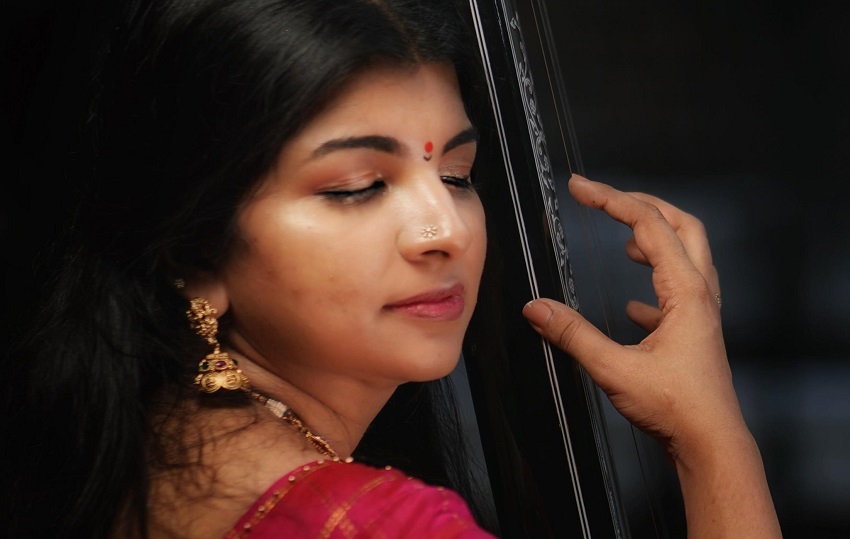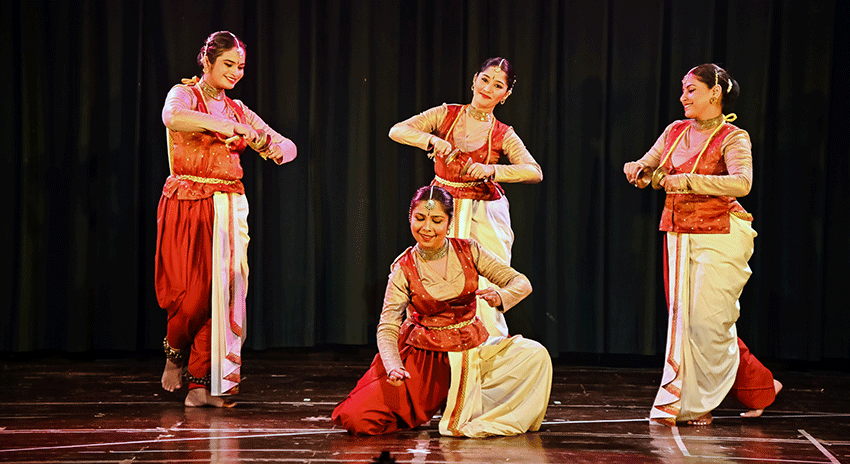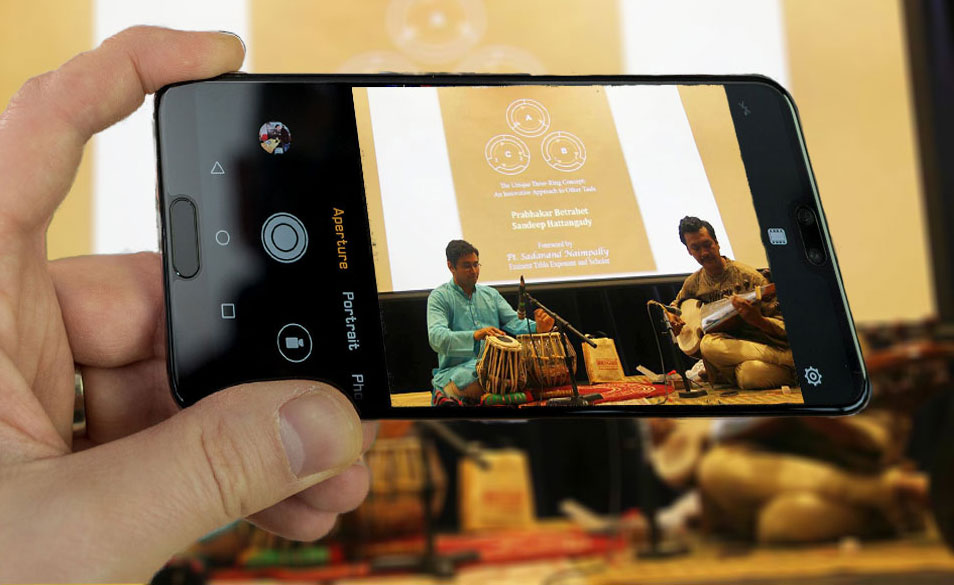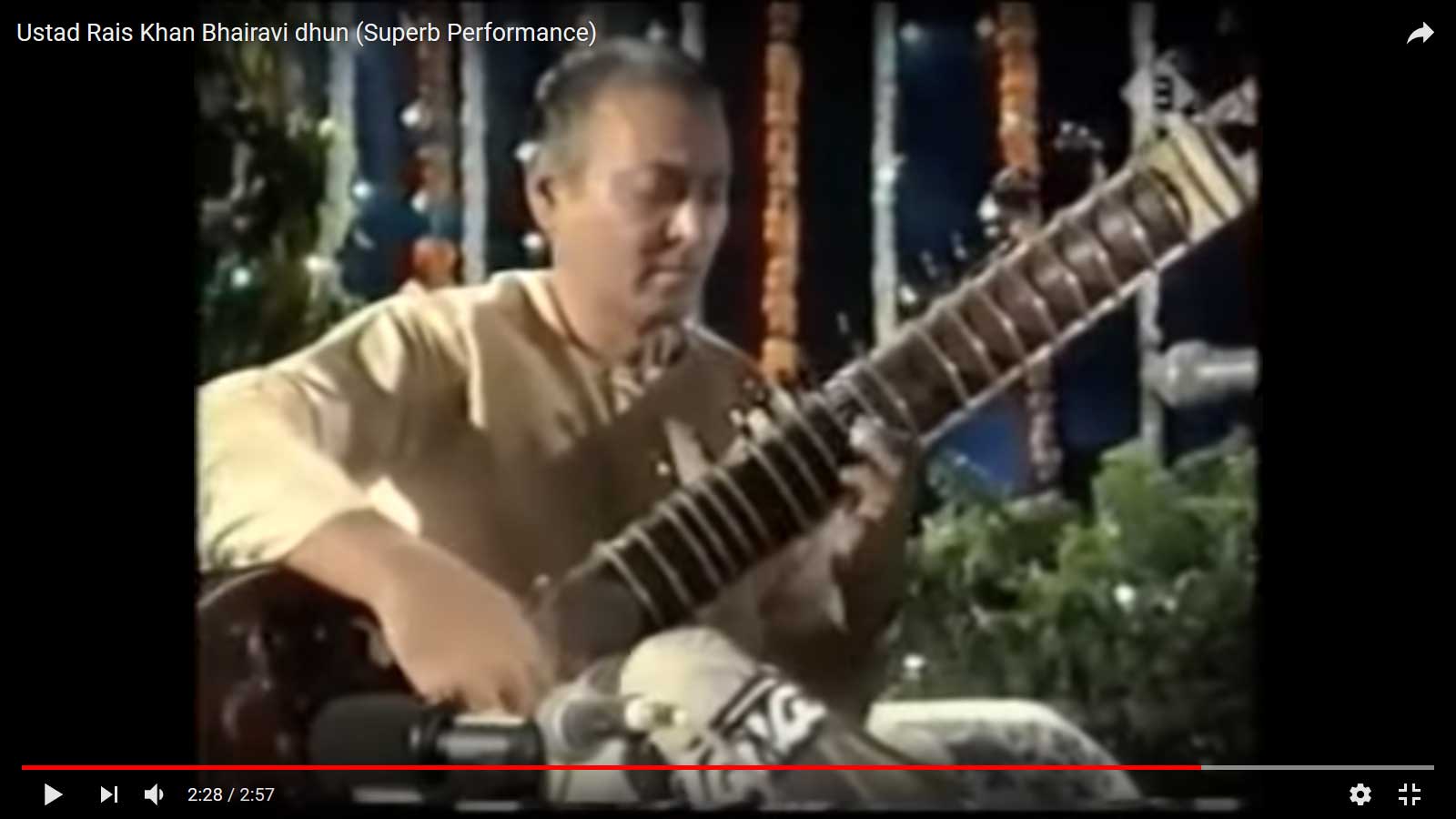Carnatic music, with its profound depth and resonant harmonies, has given rise to many exceptional vocalists over the years. Among them, N J Nandini stands out not only for her extraordinary talent but also for her commendable journey in the realm of classical music. Hailing from the culturally rich city of Trivandrum and having been bestowed with prestigious titles and awards like the Chembai Puraskaram and the M S Subbalakshmi fellowship, her story is one of dedication, lineage, and the transformative power of music. We at ClassicalClaps had the honour of delving deep into her musical voyage, understanding the intricacies of her training, her inspiration, and her aspirations.
Q. Can you talk about your journey in Carnatic music and who have been your biggest influences?
A. The journey is still continuing and will continue as long as I breathe music. Influences/influencers, I feel, need not always be from the same field. There have many personalities who are experts in their respective fields, who have inspired and encouraged me along my journey in music by either sharing their life stories or by providing constructive criticism about my music. I am still in that learning path; I will be in that learning path; I want to be in that learning path. Of course, talking about my musical journey, I can’t claim it was a bed of roses or that it was a cakewalk. I have had my share of backstabs, downfall, and thorns… along the path while building my career. However, these experiences have helped me become a stronger and better person. From some, I have learnt what I should imbibe in life, while from others, I have learnt what not to, to be a better person.
Q. Coming from a family with a musical heritage, how did this shape your career in music?
A. I am blessed to have come from a family with a musical heritage. As music was always around me while growing up, music was not something I had to imbibe. I was really lucky and blessed to have wonderful parents who recognized and nurtured the gift God has showered upon me. They have sacrificed a lot to see me grow as musician. Hearing my father introduce himself as “Kanan, Nandini’s father,” is not only something he is proud to say, but also something I am proud to hear. It’s an identity he and my mom helped create and build through the sacrifices they made. Having said that, coming from a family that has a strong background in music has its own set of responsibilities. As a torchbearer of my family’s musical legacy, I have to be careful to not dilute or distort it. I am focused on delivering the purest form of music that is continuously evolving in me.
Q. You realized your talent for identifying ragas at quite a young age. How did this early realization affect your evolution as an artist?
A. Identifying ragas was not a sudden occurrence. As mentioned in previous interviews, my parents took my brother and me to all available concerts in the city, while I was growing up. Mom told me, that when she was pregnant with me, she attended a concert by flutist KS Gopalakrishnan sir. He played a thodi that spanned 45 minutes. Interestingly, that thodi along with Kalyani are my favourites. Listening to a lot of live concerts helped me develop my ear for identifying ragas from a very young age. It has helped me in differentiating ragas with its minutest nuances, finding the alliances in ragas… It has also helped me sound them differently in their own flavour. These are all a part of the continuous evolution I was talking about earlier.
Q. You have been trained by eminent gurus such as Prof Parassala Ponnammal and Dr S Bhagyalakshmi. How important is the role of a guru in shaping a classical vocalist?
A. All my teachers were different. I learnt a lot of kritis from Bhagyalakshmi teacher. Her classes used to be early in the morning during the weekends. Her classes would span to 2 to 3 hours. I was fortunate to have teachers who did not check their watches while they were teaching. Ponnammal teacher’s training was unique. When a krithi or phrase was taught, she would repeat it until I got it right. She would never point out where I went wrong. Instead, she would just keep on repeating until I eventually identified and rectified my mistake. When I got it right, she would just utter an ‘Aah’ and move on to the next line. And while it was a time-consuming process, as the student has to identify their mistake themself, the benefit is, we will never forget the mistake, as we ourselves realised where we went wrong. Kumara Kerala Varma sir, on the other hand, would make me repeat the line that is already perfected, which was a way to create a mastery over it. Whenever I sing a kriti taught by Kerala Varma sir, an image of my classes with him, comes to mind. Anyone who has sat in Kerala Varma sir and Ponnamal teacher’s class will second that they will never forget what they taught.
Q. Can you share some interesting anecdotes from your childhood relating to music?
A. My childhood is something I cherish as it gave me a lot of memorable moments. Right from getting autographs from legends like DK Pattamal, Semmangudi Srinvasa Iyer, KV Narayanaswamy… to running around, listening to a concert or humming something during a concert at the Karthika Tirunal Theatre when I was a child. Almost all weekends were spent at a competition venue and winning prizes. The fights, my brother and I would get into after each practice session; my mother trying to soothe things out between us… All these are fond memories.
Q. Could you take us through your process of preparing for a concert?
A. In my earlier days, I would prepare for a concert much before the performance date. Every stage was important and is still important. But in those early days, you had to work hard to create and develop your own signature and name in this arena. So, I took great care in selecting my songs, preparing the ragams, thalams and pallavis and informing my accompanying artistes. These days, mental preparation helps me. It’s when there is a gap between concerts that we learn new compositions, prepare them and think and interpret them from a different angle and look at the possibilities or scope of creativity around the compositions. It is always about keeping the weapons sharp and using them when the right time comes. I focus on taking adequate voice rest much before the concert and do not experiment with food.
Q. You have performed over 700 concerts. Is there any one concert that stands out in your memory and why?
A. I have performed over 900 concerts, actually and I find it tough to restrict it to just one. Every concert is special as we will have different takeaways from the various concerts that we perform.
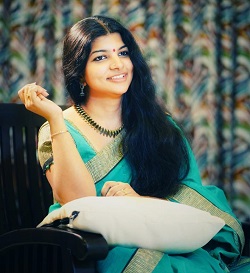
Q. You have accomplished a lot in your career. You are also the recipient of many awards and recognitions. How do these accolades impact your music journey?
A. I think accolades and awards mean more to you at the start of your career. It means that you are evolving, accomplishing something…However, soon you realise that you now bear a responsibility to the art and its lovers. There develops a constant need to outperform your last performance. For me, apart from my accolades and awards, my fans, followers, my students… are accolades. One of the greatest recognition any artist can get is being respected, recognised and accepted by his fellow peers, senior musicians and doyens from the field. I am extremely fortunate to have received patronage and messages from stalwarts from my field about my performances. I feel happy and honoured when legends and musicians who have greatly inspired me or whom I look up to, when they listen to one of my concerts on YouTube or other social media platforms, or even if they attend live or look at some of my reels, tell me that “it was good” or “this was good and I enjoyed it”. These words of praise, to me, are more important than any award.
Q. As a successful musician, what advice would you give to young budding artists aspiring to make their mark in classical music?
A. I don’t know if I have grown that much as an artiste so much as to give advice… However, based on observation, most young artistes lack the drive to pursue their goals. Things are viewed lightly, especially when it comes to art. I would advise them to practice, and persevere when it comes to learning a concept in music be it Carnatic or Hindustani. Take time, understand and evolve. Listen to the musicians of yore and appreciate and accept your fellow peers. Devote time to the arts.
Q. How did securing the 1st rank in B.com and MA in music influence your career progression in the music industry?
A. I view my musical journey and my academic journey as parallel railway tracks; one does not hinder the other. Knowledge in any form is good. Learning more about music always helps and I look forward to increasing my knowledge.
Q. Your victory in numerous TV reality shows has given you nationwide recognition. Can you share your experiences on these platforms?
A. TV reality shows can get really stressful for participants because at the end of the day, it is a competition. However, a good thing about reality shows is that you develop the skill to learn or master something within a short time span. You need to learn it, perfect it, and perform it on stage, all, within a short period. This actually increases the efficiency of learning. Efficiency of learning in the sense, you can learn a lot of things in a very short time, which is very important in the growing stage, I would say. And also, a reality show is not a one-day, one-hour affair. It goes on like six months to one year. So, you are continuously practising or putting in effort and honing your skills as a musician, which is actually very good and makes you serious about the field. And both the reality shows I have been a part of have greatly helped me in preparing myself as a musician and preparing myself in that seamless transit from a student to a performer. So, I consider that as a turning point.
Q. You’re currently pursuing a PhD in Music. Can you share some insights about your research?
A. I was awarded a PhD last November and I am currently doing my postdoctoral fellowship in music on the same subject, Manodharmam. I was a faculty member at the Sree Swathi Thirunal Government Music College for three years. According to my observation, students attend music colleges for different reasons. Some want to pursue a career in sound engineering upon graduating, some want aspire to be playback singers, musicians… And while their aspirations may differ from person to person, a common trait they seem to share is the fear for manodharmam, without which the survival or existence in Carnatic music is a questionable. There are many students who are willing to practice but do not know what to practice. This is what ignited my interest in doing this postdoctoral fellowship on the topic of how to develop Manodharmam in a person. I think my research will help many of the aspirants in this field.
Q. As an artist who has performed both in India and abroad, have you noticed any differences in how audiences respond to Carnatic music?
A. In India there are a lot of venues dedicated to the arts, be it Hindustani, Carnatic or dance forms. It is not the same abroad. They rarely receive the opportunity to attend live performances by Indian artistes. So often, I find that the audience abroad eagerly waits for the artiste and to immerse themselves in the art form. Also, the audience is a bit more disciplined, I feel, in terms of reaching the venue on time and leaving the hall only after the concert is over. The appreciation for music and for the artiste, I feel is the same in India and abroad.
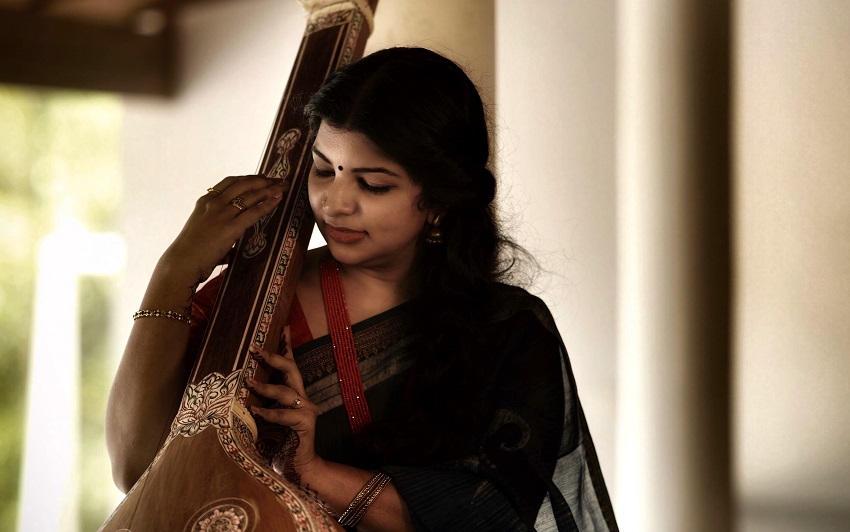 Q. Can you tell us about the most challenging moment in your musical career and how you overcame it?
Q. Can you tell us about the most challenging moment in your musical career and how you overcame it?
A. Challenges are different at different times. During my childhood days, being a part of reality show competitions, was tough. However, over time, you face newer and varied challenges. Having devoted my life to music, music often rescues me. Often on stage, music guides me into performing my best, either by giving me the presence of mind to sing that way or managing that particular moment.
Q. What are your future aspirational projects in the field of Carnatic music?
A. I am the founder chairman of Nayaki Music and Arts Foundation that is started or founded for and with the intention of providing more platforms for youngsters or aspirants by involving them in the various activities organised by Nayaki. I recently held a music carnival as the inaugural event and I am moving on to providing some scholarships and sponsorships for students who are taking up masters in music, who really need financial assistance or who require an instrument to be donated, etc. I am also considering conducting an all-India level music competition exclusively on the aspects of Manodharma. Nayaki will also conduct master classes, workshops or lectures from time to time. My next step would be something for the foundation or under the banner of the foundation.
N J Nandini’s journey in Carnatic music, punctuated by her enriching experiences, accolades, and tireless dedication, offers a heartening testament to the timeless charm of classical art forms. As we wrapped up our enlightening conversation with this prodigious artist, it became clear that Nandini’s musical legacy, borne out of rich traditions and seasoned by contemporary influences, will resonate with connoisseurs and novices alike for years to come. For young aspirants, her narrative serves as a beacon, illuminating the path of perseverance, humility, and relentless pursuit of excellence. The world of Carnatic music is undoubtedly richer with her contributions, and we eagerly await the melodies and narratives she will bring forth in the future.



